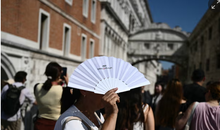
 Flash News
Flash News
Korça/ 40-year-old man jumps from fifth floor balcony, in critical condition
Croatia restores compulsory military service
Illegal constructions in Theth, Manja demands disciplinary proceedings against prosecutor Elsa Gjeli
Details from the murder of Renis Dobra, the perpetrators came with 2 Range Rover cars from Rrëshen
The Supreme Court left him in prison, Meta addresses the 'Constitution'
BBC analysis: Why did the violence between Serbs and Albanians in Kosovo 'break out'?

A deadly clash has broken out in Kosovo between armed ethnic Serbs and police belonging to the Albanian-led government.
A policeman and three gunmen were killed, in the worst escalation of violence in years.
Where is Kosovo and who lives there?
Kosovo is a small, landlocked country in the Balkans in Southeastern Europe. It borders Albania, North Macedonia, Montenegro and Serbia.
Many Serbs consider it the birthplace of their nation.
But of the 1.8 million inhabitants living in Kosovo, 92% are Albanians and only 6% are Serbs. The rest are Bosniaks, Gorans, Turks and Roma.
How did Kosovo gain independence?
After the breakup of Yugoslavia in the 1990s, Kosovo - a province of the former country - sought independence. Serbia responded with a brutal crackdown on ethnic Albanians.
This ended in 1999 with a NATO bombing campaign against Serbia between March and June.
Serbian forces withdrew from Kosovo - but for many Kosovo Albanians and Serbs, the conflict has never been resolved.
The NATO-led Kosovo Force (KFor) is still based in Kosovo, with a current strength of around 4,500 troops.
In 2008, Kosovo unilaterally declared independence.
A total of 99 out of 193 United Nations (UN) countries now recognize Kosovo's independence, including the US, Great Britain and 22 out of 27 European Union (EU) countries.
Por Rusia dhe Kina, të cilat nuk e bëjnë këtë, e kanë bllokuar anëtarësimin e Kosovës në OKB.
Dhe presidenti serb Aleksandar Vuçiq është zotuar se Serbia kurrë nuk do ta njohë Kosovën si të pavarur.
As Kosova dhe as Serbia nuk janë në BE, por:
Serbia është një vend kandidat për në BE që nga viti 2012
Kosova zyrtarisht aplikoi për anëtarësim në BE në dhjetor 2022
Procesi i anëtarësimit në BE mund të zgjasë me dekada.
Pse janë ndezur telashet tani?
Marrëdhëniet mes qeverisë së dominuar nga shqiptarët dhe pakicës serbe kanë qenë të acaruara prej vitesh.
Përplasja e fundit ndodhi kur persona të armatosur serbë etnikë sulmuan një fshat në veri të Kosovës, duke u barrikaduar në një manastir ortodoks serb.
Në qendër të dhunës është politika e qeverisë së Kosovës për të vendosur autoritet mbi të gjithë Kosovën.
Serbët etnikë e kundërshtojnë këtë dhe gjithashtu duan më shumë autonomi.
Në vitin 2022, përfaqësuesit serbë në veri të vendit dhanë dorëheqjen në shenjë proteste kundër ndalimit të targave të lëshuara nga Serbia.
Pas dorëheqjes, zgjedhjet lokale u mbajtën në prill 2023, por u bojkotuan nga shumica e popullsisë serbe.
Katër kryetarë komunash shqiptarë etnikë u zgjodhën me një pjesëmarrje prej më pak se 4%. Kryetarët e komunave u vendosën nga policia e armatosur e Kosovës, duke provokuar përleshje të dhunshme me serbët vendas.
NATO dërgoi 700 trupa shtesë në vend, pasi disa nga ushtarët e saj paqeruajtës u plagosën në përleshjet.
Kush është fajtori për dhunën?
Kryeministri i Kosovës Albin Kurti akuzoi qeverinë e Serbisë për mbështetjen e personave të armatosur të përfshirë në përleshjet më të fundit.
However, Serbian President Aleksandar Vučić said that Kosovo officials bore the ultimate responsibility.
The EU had mediated between the two sides, but the talks failed.
EU foreign policy chief Josep Borrell blamed Mr Kurti for failing to take steps to give the Serbs more autonomy.
The Foreign Minister of Kosovo, Donika Gervalla-Schwarz, criticized the statement of Mr. Borrell, saying she did not express support for the police, nor did she call the attackers "terrorists."
Latest news


Malltezi: SPAK admits, we are in a process that began with Balla's false report
2025-07-10 22:34:16

Si të çliroheni nga bllokimet emocionale me anë të ushtrimeve
2025-07-10 21:57:24

Lala: Veliaj wanted to return as mayor
2025-07-10 21:40:46

VIDEO/ Brawl in Bolivian parliament, deputies physically clash
2025-07-10 21:20:30


Albania experienced one of the longest heat waves of the last decade
2025-07-10 21:01:09

The Government approves new procedures for declaring residence in e-Albania
2025-07-10 20:39:32

Koka: Northerners will not forget Edi Rama's racist operation in Theth
2025-07-10 20:18:24
The 3 zodiac signs that will be most affected by the 'Full Moon' of July 10
2025-07-10 20:04:49
New director of the National Center of Cinematography appointed
2025-07-10 19:51:12
Korça/ 40-year-old man jumps from fifth floor balcony, in critical condition
2025-07-10 19:40:19
'Tired Woman'/ The Syndrome That Affects Thousands of Women Every Day
2025-07-10 19:34:02
Jane Birkin's original Hermès bag sells for $10 million
2025-07-10 19:26:22

Britain-Ukraine agreement signed for 5,000 Thales missiles
2025-07-10 19:00:25
Fire in Zvërnec, flames endanger two hotels
2025-07-10 18:57:19
Croatia restores compulsory military service
2025-07-10 18:39:01
Spahia: The great truth of the strong accusation of the residents of Theth
2025-07-10 18:35:07


The Supreme Court left him in prison, Meta addresses the 'Constitution'
2025-07-10 17:57:21
New punishment with 'new' regulations
2025-07-10 17:54:46
EU translator fired over fears for Zelenskyy's safety
2025-07-10 17:45:37
'You are a policeman, but not God, take my soul', protest for Agon Zejnullahu
2025-07-10 17:41:21


Video/ Rama repeats the scenario, kneels before Meloni again
2025-07-10 16:56:31
He set fire to a plot of olive trees, 50-year-old man arrested in Shijak
2025-07-10 16:46:19

Rubio: US and Russia have exchanged new ideas for Ukraine peace talks
2025-07-10 16:36:20
Death of 27-year-old, Lipjan Police Commander Resigns
2025-07-10 16:21:28
Video/ An apartment burns in Tirana near the New Bazaar
2025-07-10 16:09:36


Jensila lights up the internet with her birthday greetings to Ledri
2025-07-10 15:42:08
They're full of pesticides! List of 12 products we need to be careful of
2025-07-10 15:31:04

Worker falls from scaffolding in Shëngjin, urgently sent to Trauma
2025-07-10 15:11:03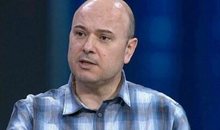
Malltezi: Within one day they seized my accounts, properties and shares
2025-07-10 15:01:23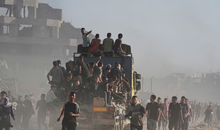
EU: Israel has agreed to more aid to Gaza
2025-07-10 14:55:19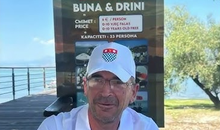
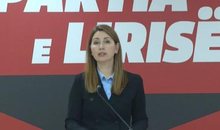
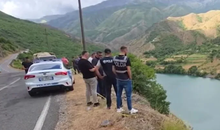
Murder of Reni Dobra, 23-year-old's vehicle pulled from the water
2025-07-10 14:29:23
Trump's tariffs on Brazil raise coffee prices
2025-07-10 14:16:07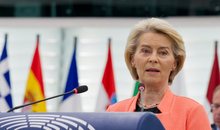
Ursula von der Leyen survives no-confidence vote
2025-07-10 14:04:27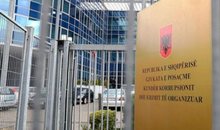
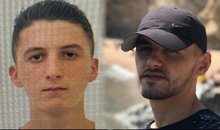
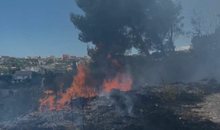
Fire in Lezha, flames near electrical substation
2025-07-10 13:32:24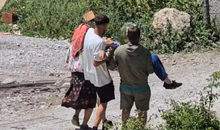
Residents clash with police in Theth, a woman faints
2025-07-10 13:24:38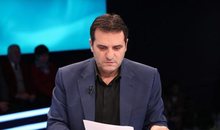
"Rama and Xanun"
2025-07-10 13:15:46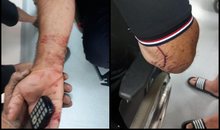

Zodiac signs most likely to get divorced in July 2025
2025-07-10 12:45:51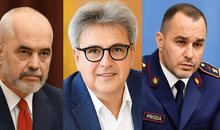
A scapegoat for an illegitimate Republic
2025-07-10 12:35:02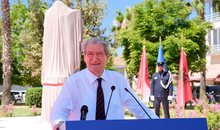
"He has devastated his own nation"/ Berisha: Rama imprisons his opponents!
2025-07-10 12:26:54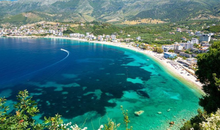
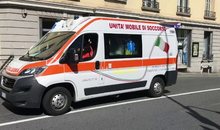
Albanian man injured with knife in Italy
2025-07-10 12:08:55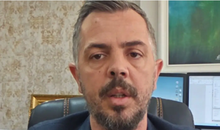
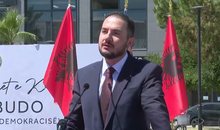
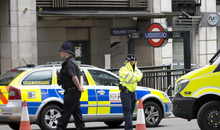
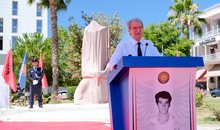
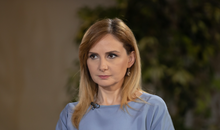
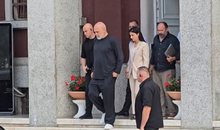
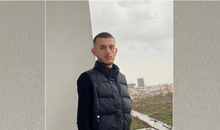
23-year-old in Mat drowned with rope, 4 suspects are being held
2025-07-10 10:58:53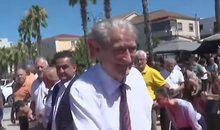
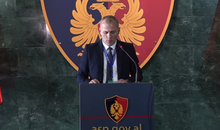
After the dismissals, the new director of the Shkodra Police is appointed
2025-07-10 10:30:10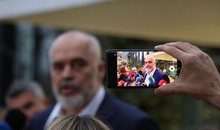
BIRN: Rama's action for public spaces, a repeated spectacle
2025-07-10 10:29:11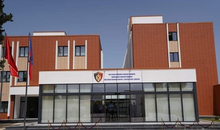
Action in Theth, Shkodra Police leaders dismissed
2025-07-10 10:16:28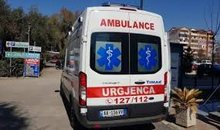
Fatal accident on the Tirana-Durres highway
2025-07-10 10:01:58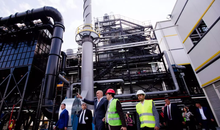
The incinerator does not exist, but the government continues to increase funds
2025-07-10 09:51:45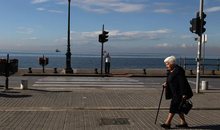
Albania is aging at a rapid pace! 30% of the population is over 60 years old
2025-07-10 09:46:23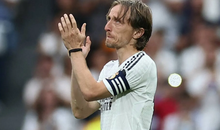
End of an era, Modric says 'goodbye' to Real Madrid
2025-07-10 09:36:09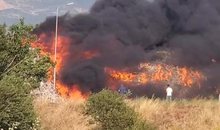
Mount Dukat has been on fire for 6 days, residents request air intervention
2025-07-10 09:27:24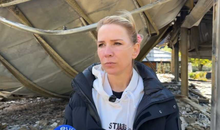
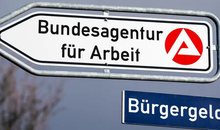
"Poverty on the rise"/ DW: Many people in Germany are not getting paid
2025-07-10 09:08:06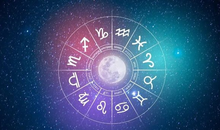
Horoscope, what do the stars have in store for you today?
2025-07-10 08:51:59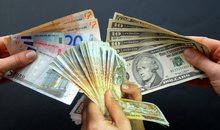
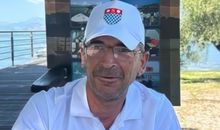
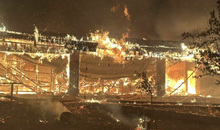
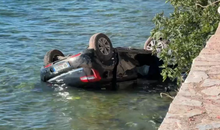
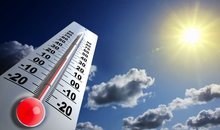
The scorching heat returns, the thermometer climbs to 40°C
2025-07-10 07:58:52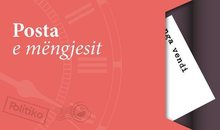
Morning Post/ In 2 lines: What mattered yesterday in Albania
2025-07-10 07:46:35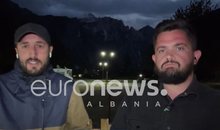
Tourist operator in Theth: They are demolishing our houses without warning
2025-07-09 22:54:57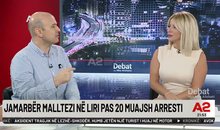
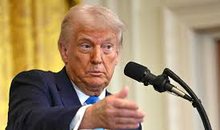
Trump and Israeli commander warn: Gaza ceasefire could be near
2025-07-09 22:13:21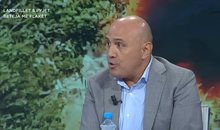
Fire in Elbasan Landfill, pedagogue: It is a cancer and environmental crime
2025-07-09 21:54:47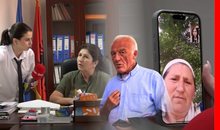
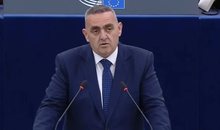
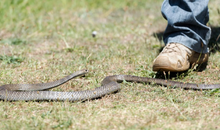
Dangerous summer, number of snake bites increases
2025-07-09 21:22:13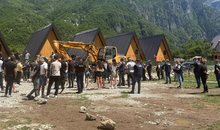
Berisha appeals again: Stop state terror against the residents of Theth!
2025-07-09 21:15:36
'Kissing disease' virus linked to several forms of cancer
2025-07-09 21:04:44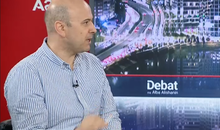
Malltezi confesses after release: Justice has become a political weapon
2025-07-09 20:51:48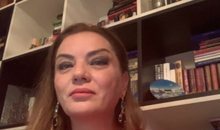
Vokshi: Albania's EU integration has stalled due to lack of free elections
2025-07-09 20:37:21